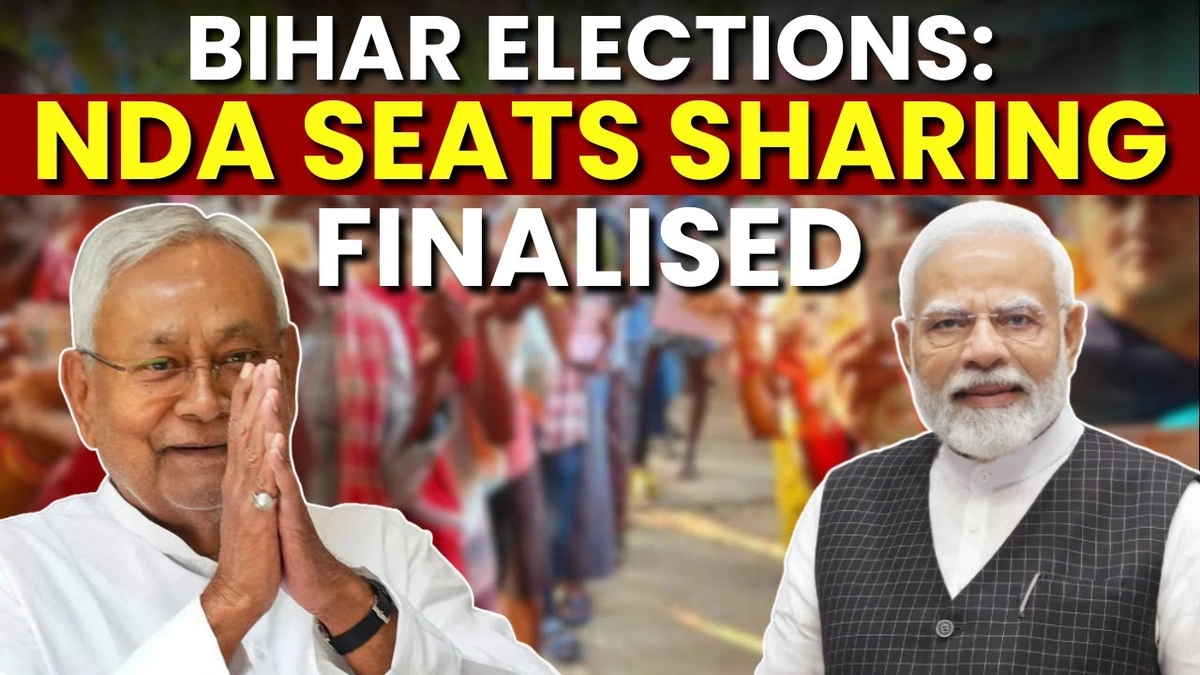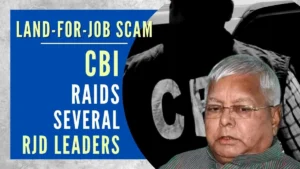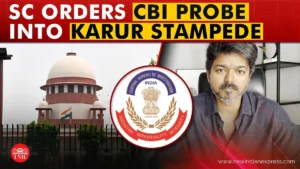Bihar Seat-Sharing Deadlock | NDA and INDIA Bloc Struggle as Nominations Start
The air in Bihar is thick with anticipation, isn’t it? The election drums are beating, nominations are rolling in, and yet – a seat-sharing showdown is unfolding within both the NDA and INDIA blocs. It’s like watching a high-stakes chess game where the players can’t quite agree on the rules. What fascinates me here isn’t just the political maneuvering, but why this deadlock is happening now, and what it signals about the future of these alliances.
Why is Bihar Seat-Sharing Such a Headache?

Here’s the thing: Bihar’s political landscape is a complex tapestry woven with caste, community, and regional loyalties. Parties aren’t just vying for seats; they’re fighting for survival and relevance. Each party believes they hold the key to unlocking a particular voter base. The BJP, for instance, sees itself as the dominant force, riding high on Prime Minister Modi’s popularity. But their allies, like JDU, remember that they have their own support base, and they have their own demands.
What is fascinating about the current situation is that everyone wants a bigger slice of the pie, of course, but no one wants to be seen as the one who brought the whole process crashing down. That’s where the real tension lies. The delay in finalizing alliance strategies highlights deeper cracks and mistrust – cracks that could potentially widen as the election progresses. Political analysts are closely watching to see which party blinks first, because that will likely determine who has the upper hand going forward.
INDIA Bloc | Unity in Name Only?
The INDIA bloc, meant to present a united front against the NDA, is facing its own internal struggles. The Congress, as a national party, naturally wants a significant share of the seats. But regional players like RJD (Rashtriya Janata Dal) and others have their own strongholds and aren’t keen on ceding ground. So, the question becomes: can these parties truly put aside their differences for the greater goal of defeating the NDA, or will their individual ambitions sabotage their chances? Remember, united we stand, divided we fall – and that’s especially true in the cutthroat world of Bihar politics. The final seat allocation is often a compromise, and right now, no one seems willing to compromise.
The Impact on Nominations and the Election Schedule
Nominations are already underway, and the delay in finalizing seat-sharing agreements creates a chaotic situation. Potential candidates are left in limbo, unsure whether they’ll even get a ticket to contest. This uncertainty can lead to infighting, defections, and ultimately, a weakened campaign. And let’s be honest, a divided house is much easier to conquer. Also, coalition dynamics will be seriously impacted if this deadlock continues.
The election schedule itself adds another layer of pressure. Parties are racing against time to finalize their candidates, organize their campaigns, and reach out to voters. Every day lost in internal negotiations is a day less to connect with the electorate. It’s a high-pressure environment, and the stakes are incredibly high. A misstep now could cost a party dearly in the final results.
Decoding the Possible Outcomes
So, what happens next? Several scenarios are possible. One, a last-minute compromise is reached, and both the NDA and INDIA blocs present a united front, albeit with some grumbling. Two, some parties decide to go it alone, breaking away from their respective alliances and throwing the election wide open. Three, the deadlock persists, leading to confusion and potentially lower voter turnout.
Honestly, predicting the outcome is like trying to catch smoke with your bare hands – incredibly difficult. The only certainty is that Bihar politics is never boring. It’s a constantly evolving drama filled with twists, turns, and unexpected alliances. Keep in mind that the election strategies will determine the final outcome. Ultimately, the voters will have the final say, and their decision will shape the future of Bihar for years to come. One thing I absolutely recommend checking is that candidates are verified.
Consider these regional alliances and how they shift, depending on the election. Elections in Bihar are always a mixed bag.
What This Means for the Average Voter
Beyond the headlines and political posturing, this power sharing arrangement impacts the average voter. A stable, unified government is more likely to deliver on its promises and address the needs of the people. A fractured, divided government, on the other hand, is often mired in internal conflicts and struggles to get anything done. So, voters should pay close attention to which parties are willing to put aside their differences and work together for the common good. Because at the end of the day, it’s the people of Bihar who will bear the consequences of this political chess game. Always remember that. A common mistake I see people make is underestimating the long term effects of election results, and not reading up on the candidates. And finally, ensure you understand your district’s specific needs. It’s worth it to be educated!
FAQ
Frequently Asked Questions
What happens if the seat-sharing agreement isn’t finalized before the election?
If agreements aren’t reached, parties may contest independently, leading to vote division and potentially unpredictable results.
How does caste play a role in Bihar’s seat-sharing dynamics?
Caste affiliations heavily influence which party contests from which constituency, based on local demographics and historical voting patterns.
Could this deadlock affect voter turnout?
Yes, uncertainty and confusion could lead to voter apathy and decreased participation.
What are the key issues voters should focus on during this election?
Focus on issues like development, employment, education, and healthcare, and assess which party has the best plan to address them.













